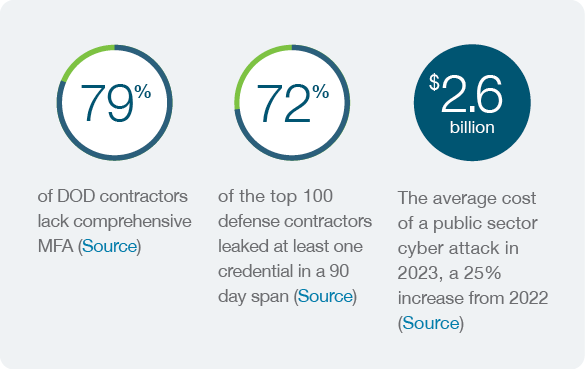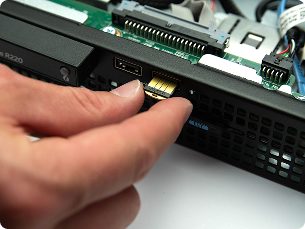Securing federal systems integrators and the defense industrial base with modern authentication
Stay one step ahead with Zero Trust and phishing-resistant MFA
Cyber attacks are on the rise
While the federal government is making strides in mandating the use of phishing-resistant multifactor authentication (MFA) across the executive branches, progress is unclear with federal system integrators (FSIs) and the Defense Industrial Base (DIB), which serve as an extension of the government. In fact, between 2015 and 2022, breaches against the DIB more than doubled.
Attacks to FSIs and DIBs can have large consequences
FSIs have access to critical systems and hold large volumes of sensitive and Controlled Unclassified Information (CUI), making them targets of sophisticated attacks that combine malware, phishing, and/or hacking. A major challenge for both government and FSIs is that integrators may not have the same level of security as the agencies they serve—providing adversaries with an alternative attack point to compromise the integrity of products being delivered or the security and privacy of the data or code being exchanged.

Not all MFA is created equal
Any MFA is better than a password, but not all MFA is created equal. Legacy authentication technologies—such as SMS, onetime passcodes (OTP), and push notification apps—remain highly susceptible to account takeovers from phishing, social engineering and attacker-in-the-middle incidents.
Hardware security keys such as the YubiKey are the only technology that offer phishing-resistant multi-factor and passwordless authentication at scale, helping organizations jump start their Zero Trust journey. Below are the benefits of the YubiKey:

Yubico also offers the YubiHSM 2 FIPS that offers low cost hardware cryptographic security for servers, applications and computing devices in an innovative ‘nano’ form-factor that allows flexible deployment. The YubiHSM 2 FIPS can be applied to any process where secrets and the authenticity of components needs to be managed. It can be easily deployed to any USB slot on servers, databases, robotic assembly lines, applications, and IoT devices.
